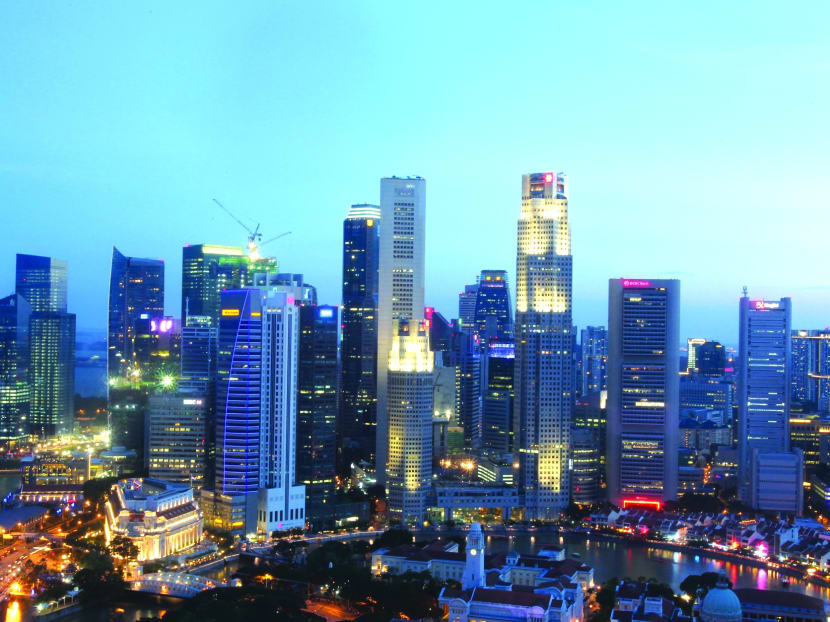Ariana Grande concert attack: Experts on lessons for Singapore
SINGAPORE — Security measures for events, such a pop concert, need to be implemented on a broader scale, rather than localising them at the designated venue. This is especially necessary if there are major transport nodes nearby, so as to cover the commute to and from an event, said security analysts in the wake of the Manchester bombing.
SINGAPORE — Security measures for events, such a pop concert, need to be implemented on a broader scale, rather than localising them at the designated venue. This is especially necessary if there are major transport nodes nearby, so as to cover the commute to and from an event, said security analysts in the wake of the Manchester bombing.
The bomb tore through an entrance hall of the Manchester Arena at about 10.30pm on Monday (local time) as a concert by the American pop star Ariana Grande was ending, and crowds of teenagers had begun to leave, many for an adjacent train station.
Analysts interviewed by TODAY noted that while the recently-passed amendments to the Public Order Act in Singapore requires organisers of large-scale events to put in place security measures — from deploying armed security officers to conducting bag and full-person checks — the Manchester bombing highlights new gaps that could be exploited: Security post-event, and routes to public transport facilities.
“Pre- and post-event security is important SOP (standard operating procedure) and should encompass nearby major transport hubs like train and bus stations,” said Associate Professor Kumar Ramakrishna, head of policy studies at the S Rajaratnam School of International Studies (RSIS).
Security personnel and clear screening points should be activated at the exits and around the venue to deter post-event brawls and suss out suspicious activity, said research analyst Nur Diyanah Anwar from the Centre of Excellence for National Security at the RSIS.
Security coverage should be extended not only to transport nodes, but surrounding nearby areas that may expect to see “high human and vehicular traffic” pre- and post-event, she added, citing parking areas and malls as examples.
National University of Singapore political scientist Bilveer Singh, however, felt that holding events too close to transport hubs is not a good idea as they may lead to “double kills”.
“(Terrorists) can then target the transport hubs, which may also be the entry and exit points to the event, and the event venue itself. Unfortunately, modern societies are always talking of economies and reducing costs and making it convenient to sell their ‘products’. The end result is that we become sitting targets for evil-doers,” said Associate Professor Singh.
He added that security must be enhanced not just for national level events, as “lower level events can result in huge casualties”, too.
Organisers of several upcoming events told TODAY that they will continue to work with the authorities to ensure that necessary precautions are in place.
Mediacorp VizPro, which is managing the Mandopop diva A-Mei’s concert at the Singapore Indoor Stadium on June 9 and 10, said it will come up with a “comprehensive security plan” involving both armed and unarmed security personnel for the event. About 95 per cent of the 15,000 seats for the weekend concerts have been sold.
Organisers of the DBS Marina Regatta, to be held from June 1 to 4, said they will keep “in close consultation” with the police and relevant security agencies to ensure that necessary precautions are in place.
IME Entertainment Group, which is bringing Britney Spears here at the end of next month, said they are “definitely looking at tightening security” and will work closely with the police to determine what is necessary.
In response to TODAY’s queries, a Ministry of Home Affairs’ (MHA) spokesperson said that amendments to the Public Order Act last month will help protect the public against terrorist or public order threats at events such as large-scale music concerts.
Among other things, the amendments require public-event organisers to notify the police if they expect a crowd of more than 5,000. The police will assess the nature of the event before drawing up the security requirements, taking into account factors such as whether prominent individuals will be attending, the prevailing threat situation, and the amount of media coverage. For private events, the threshold is 10,000.
A new Infrastructure Protection Act, to be introduced later this year, will also require new, large-scale developments to incorporate security measures when they are being designed. The Act may also require owners of premises to adopt additional protective measures, such as bag checks, during heightened security climate.
“These legislative amendments will help protect Singapore against terror attacks by improving security at key events and buildings. They complement MHA’s ongoing efforts to improve security response, community vigilance and preparedness against terrorism threats,” said the spokesperson.







